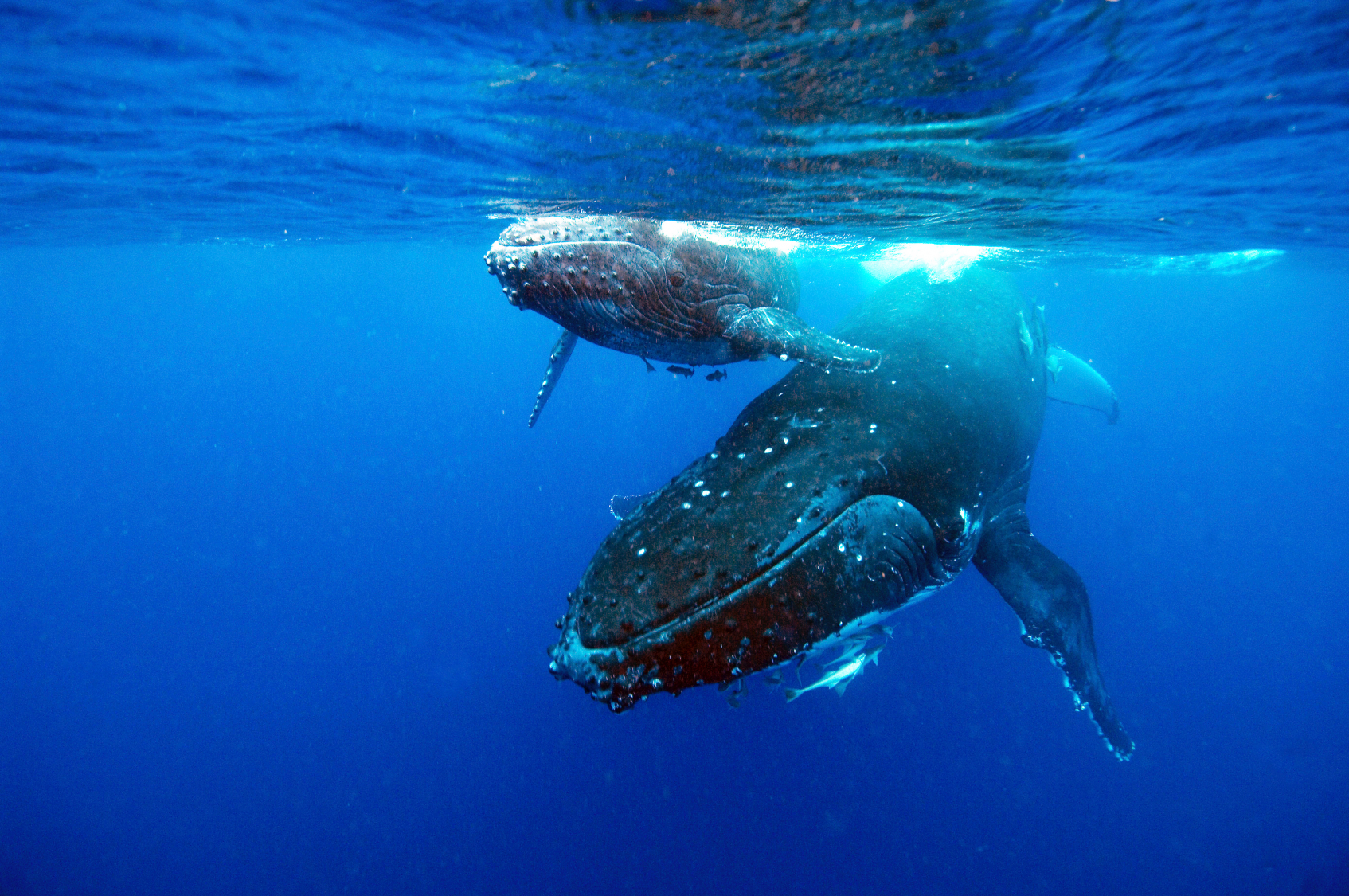The week's good news: Nov. 16, 2023
It wasn't all bad!


A free daily email with the biggest news stories of the day – and the best features from TheWeek.com
You are now subscribed
Your newsletter sign-up was successful
Minnesota teens work together to close achievement gap at their high school
Every Tuesday afternoon, dozens of students at East Ridge High School in Woodbury, Minnesota, break into groups to quiz each other on science terms, share ideas for history projects and tackle math problems. These teens are members of the Close the Gap club, which aims to close the achievement gap at the school. Minnesota Department of Education data shows that at East Ridge, 64% of white 11th-graders met or exceeded math standards, with the number dropping to 41% for Black students and 31% for Hispanic students. Most members of Close the Gap are students of color, and they find "it's a nonjudgmental space," sophomore Jacob Tamrat told the Star Tribune. "I really feel a sense of inclusion — part of a community." The club has also partnered with the campus chapter of the National Honor Society, with members offering peer tutoring. "These students saw an opportunity to lead, saw a need and grew it into this magical place where they help each other," Close the Gap advisor Laura Newton said.
Man undergoes world's first whole-eye transplant
Aaron James is a medical marvel. The 46-year-old Arkansas resident was injured in an accident at his workplace, and lost his left eye and part of his face. In May, he underwent a 21-hour surgery at NYU Langone Health in New York, with a team of 140 surgeons performing the first-ever successful whole-eye transplant in a living person, as well as a partial face transplant. His wife Meagan James said seeing her husband for the first time after surgery "was a crazy, great, weird, strange, ecstatic, happy feeling." Six months after the surgery, Aaron's doctors said his eye is showing "remarkable" signs of health, and it's his hope he'll have vision in it someday soon. The operation was risky, but Aaron is thrilled with how it turned out and happy to be part of this educational moment for doctors. "You have to have a patient zero," he said.
Dog leads owner to pet cat that fell down a mineshaft
A dog named Daisy embraced her inner Lassie, leading her owner to a mineshaft where a missing cat was waiting to be rescued. After nearly a week of searching for her cat Mowgli, Michele Rose had "almost given up hope" of finding him, she told BBC News. Suddenly, her dog Daisy started "going berserk," and was running back and forth between their house and the nearby woods. Rose followed Daisy to an old mineshaft that Mowgli had fallen into. "Daisy is a superstar," Rose said. "She's an amazing dog. Without Daisy doing that, Mowgli could still be down there, that's for sure." Mowgli had dropped down 100 feet, and firefighters had to rescue him. He was in good condition, and happy to reunite with Rose, Daisy and the family's other cat, Baloo.
The Week
Escape your echo chamber. Get the facts behind the news, plus analysis from multiple perspectives.

Sign up for The Week's Free Newsletters
From our morning news briefing to a weekly Good News Newsletter, get the best of The Week delivered directly to your inbox.
From our morning news briefing to a weekly Good News Newsletter, get the best of The Week delivered directly to your inbox.
Dengue rates drop dramatically in Colombia following release of modified mosquitos
After modified Aedes aegypti mosquitos were released in three cities in Colombia, dengue fever rates plummeted. Following the introduction of the mosquitos, the nonprofit World Mosquito Program (WMP) monitored the areas for several years, and found in neighborhoods that had high dengue activity, the number of cases dropped by 94% to 97%. The mosquitos were carrying a bacterium called Wolbachia, which prevents the insects from transmitting viruses like dengue and Zika. The bacteria is passed along to a mosquito's offspring, and researchers found in the Colombian cities of Bello and Itagüí, more than 60% of the local mosquitos now carry Wolbachia. "They've had six years now with a sustained suppression of dengue," WMP epidemiologist Katie Anders told Nature. "We're starting to see the real-world effect of Wolbachia."
Electric airship promises 'climate-friendly' transportation and humanitarian aid
The world's largest aircraft, called the Pathfinder 1, was unveiled in Silicon Valley last week, promising a new era in greener flight. Powered by 12 electric motors, the Pathfinder 1 can reach speeds of up to 75 mph. The aircraft is longer than three Boeing 737s, and its creator, LTA, said it hopes the Pathfinder 1 will "kickstart a new era in climate-friendly air travel" and "accelerate humanitarian work," TechCrunch reported. The Pathfinder 1 must now undergo several "ambitious" test flights, but LTA is already looking ahead, and plans on making even larger airships capable of carrying 200 tons of cargo each. This could be a game changer when it comes to delivering aid to disaster zones.
A free daily email with the biggest news stories of the day – and the best features from TheWeek.com
Catherine Garcia has worked as a senior writer at The Week since 2014. Her writing and reporting have appeared in Entertainment Weekly, The New York Times, Wirecutter, NBC News and "The Book of Jezebel," among others. She's a graduate of the University of Redlands and the Columbia University Graduate School of Journalism.
-
 What to know before filing your own taxes for the first time
What to know before filing your own taxes for the first timethe explainer Tackle this financial milestone with confidence
-
 The biggest box office flops of the 21st century
The biggest box office flops of the 21st centuryin depth Unnecessary remakes and turgid, expensive CGI-fests highlight this list of these most notorious box-office losers
-
 The 10 most infamous abductions in modern history
The 10 most infamous abductions in modern historyin depth The taking of Savannah Guthrie’s mother, Nancy, is the latest in a long string of high-profile kidnappings
-
 The week's good news: Jan. 18, 2024
The week's good news: Jan. 18, 2024Feature It wasn't all bad!
-
 The week's good news: Jan. 11, 2024
The week's good news: Jan. 11, 2024Feature It wasn't all bad!
-
 The week's good news: Jan. 4, 2023
The week's good news: Jan. 4, 2023Feature It wasn't all bad!
-
 The week's good news: Dec. 21, 2023
The week's good news: Dec. 21, 2023Feature It wasn't all bad!
-
 The week's good news: Dec. 14, 2023
The week's good news: Dec. 14, 2023Feature It wasn't all bad!
-
 The week's good news: Dec. 7, 2023
The week's good news: Dec. 7, 2023Feature It wasn't all bad!
-
 The week's good news: Nov. 30, 2023
The week's good news: Nov. 30, 2023Feature It wasn't all bad!
-
 The week's good news: Nov. 9, 2023
The week's good news: Nov. 9, 2023It wasn't all bad!
